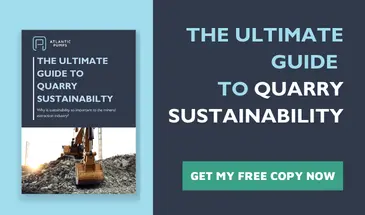Let’s Dip into River Health
With World Rivers Day around the corner, let’s talk about the state of our river health.
Human civilisation has largely formed around the world’s rivers, with key cities developing at the conflux of larger waterways.
Having provided us with transport links, food, water, and washing facilities, rivers have suffered greatly from human activity.
Is UK river health declining or improving?
Without more monitoring capability, it is difficult to obtain a clear picture of river health changes on a year-by-year basis. Water quality surveys are patchy and only conducted officially every 3 years. It’s only relatively recently that the level of environmental damage of PFAs (Per- and polyfluoroalkyl substances) has been realised. This led to a change in how chemical pollution is scored, resulting in most rivers being labelled ‘good’ in 2016 chemical tests to failing ever since 2019. Many PFAs are now banned, but they are known as ‘forever chemicals’ due to their persistence.
It is concerning that there was no overall improvement from the 2019 to the 2022 river survey reports. The test criteria remained the same, although there was a reduction in the number of sampling tests. What is clear is that we need to keep working hard for our life-giving rivers.
Since the Environment Act being passed in 2021, we are starting to see much more data from the continuous water monitoring which water companies are now doing. The resulting knowledge has been a wake-up call on the frequency and volume of sewage overspills that have long been occurring. This has gone a long way to establishing a base line from which to take action and should allow us see the progress rate going forward.

Great river health is within our reach – let’s do it now
The good news is that we’ve never had so much public awareness, ability, and opportunity to pay our rivers back with some TLC – particularly in post-industrial developed countries. With determined action to halt pollution, rivers have shown remarkable power to recover from past industrial damage and exploitation.
Water companies are undertaking many major projects to reduce sewage leaks from CSO (combined sewage overflows), and farmers are improving practices to prevent nitrates and pesticides entering watercourses.
The River Thames – the success story continues
In the late 1950s the River Thames was biologically dead – unable to sustain any life. Yet, ongoing work to prevent rubbish and sewage entering it since then, coupled with the removal of over 200 tonnes a year of litter (Thames21.org.uk) has resulted in 125 species of fish returning, along with 400 species of invertebrates. Dissolved oxygen concentrations have shown a sustained increase, showing a good unlaying health.Thames Water has concluded sewage treatment capacity projects costing £1.2 billion over the past three years and there’s more to come. The £5 billion Thames Tidesway opens next year, and Thames Water say it will decrease CSO (combined sewage overspills) by 80 - 90% depending on weather.
All Rivers run into the sea
Let’s not forget the global picture; while in this isle, we are rightly concerned about the aquatic environmental health and even the ‘bathing quality’ of our rivers, millions of people living in poverty alongside rivers like the Ganges, or Citarum in Indonesia suffer thirst, disease and stench. Rivers that used to sustain a healthy fishing trade, can at best, provide traditional fishing families with ‘fishing for recyclables’ rather than food.What can we in our everyday life do about it? Before diving for that next fast-fashion, cheap T-shirt take a moment to think about its providence and the wider cost of ‘cheap’.
The whole water cycle is one closed loop recycling system that effects us all eventually. Our rivers and seas help stabilise the climate, absorb CO2 and temperature extremes.
Get involved in the action this World Rivers Day 2024
This Sunday, 22nd September is World Rivers Day. Why not get out and about by your local river to reflect and gain inspiration for action. Many local organisations are running events this weekend to celebrate World Rivers Day 2024, from the Thames 21 Foreshore Clean-up, to West Cumbria’s family-friendly action day on the River Ehen estuary at Longlands.
Cornwall: Westcountry Rivers Trust are running a free practical course on Freshwater Invertebrates identification, aimed at educators this Saturday 21st Sept at 9:30am
Dumfries: Dumfries and Galloway Council’s Environment Team are running a citizen science session along with Annan Harbour Action Group “Exploring the River Through Her Underwater Life” on 22nd Sept 10am – Noon.
Yorkshire: Ilkley Clean River Group are hosting a session “Cleaning up our Rivers, Lakes & Seas – The Answers” with expert speakers from academia and Yorkshire Water
What can industry do to prevent water pollution?
There are many sources of water pollution and multiple reasons for the mounting pressure on our rivers, so there’s no ‘one-size-fits-all’ solution. Atlantic Pumps provide solutions for companies committed to protecting the environment, their reputation, and their financial sustainability. When it comes to pH, grit, silt, temperature, abstraction and discharge limits, on-site water recycling, monitoring and reporting, EnviroHub is a modular system that we recommend.
Are you involved in water monitoring and pollution control in a professional capacity? If so, please get in touch to explore how we can work together to provide more solutions for protecting our waterways from industry and urban pollution.


